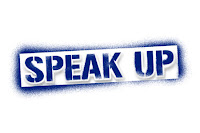 A few days back I encouraged you to ask the right questions.
A few days back I encouraged you to ask the right questions. Consider that what you're about to read, although dealing with events that are undatable (any dates assigned to Genesis 1-11 would be conjecture at best), probably came to its finished written form sometime during the Babylonian exile of Jacob's descendants, or shortly thereafter. We're talking the mid 6th century B.C. (somewhere around 550 B.C.)
Sometimes the Pentateuch (1st 5 books of the Bible, also called the Law, Torah, or the Books of Moses) is referred to as the story of pre-land Israel. Genesis through Deuteronomy tell the story of the people of Israel, their descent into Egypt, the Exodus, receiving the Law, wilderness wanderings, and finally their assembly on the far banks of the Jordan River, ready to go in and take the Promised Land. So what you're reading is the story of one landless Hebrew people as understood by its exiled descendants, also a landless people.
Consider how this story would read to a Hebrew exile, cut off from the land of his ancestors, yet dreaming of returning there soon.
You'll want to explore why God dealt with his people (Adam, Abraham, Jacob and Moses) as he did. Also, inquire as to the message intended for that Israelite refugee. Finally, as you read his story, determine what God might be speaking into your story.
















